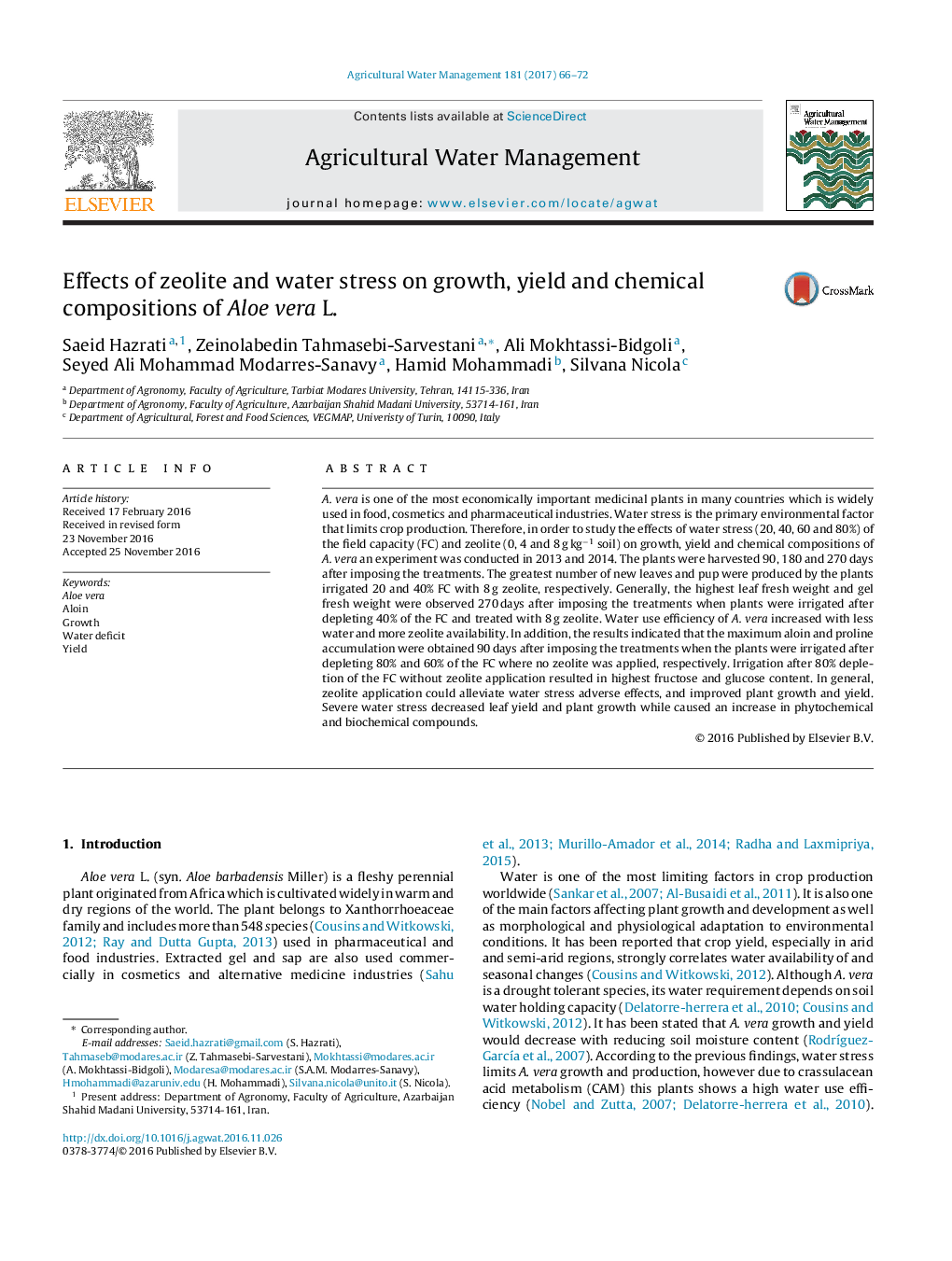| Article ID | Journal | Published Year | Pages | File Type |
|---|---|---|---|---|
| 5758575 | Agricultural Water Management | 2017 | 7 Pages |
Abstract
A. vera is one of the most economically important medicinal plants in many countries which is widely used in food, cosmetics and pharmaceutical industries. Water stress is the primary environmental factor that limits crop production. Therefore, in order to study the effects of water stress (20, 40, 60 and 80%) of the field capacity (FC) and zeolite (0, 4 and 8 g kgâ1 soil) on growth, yield and chemical compositions of A. vera an experiment was conducted in 2013 and 2014. The plants were harvested 90, 180 and 270 days after imposing the treatments. The greatest number of new leaves and pup were produced by the plants irrigated 20 and 40% FC with 8 g zeolite, respectively. Generally, the highest leaf fresh weight and gel fresh weight were observed 270 days after imposing the treatments when plants were irrigated after depleting 40% of the FC and treated with 8 g zeolite. Water use efficiency of A. vera increased with less water and more zeolite availability. In addition, the results indicated that the maximum aloin and proline accumulation were obtained 90 days after imposing the treatments when the plants were irrigated after depleting 80% and 60% of the FC where no zeolite was applied, respectively. Irrigation after 80% depletion of the FC without zeolite application resulted in highest fructose and glucose content. In general, zeolite application could alleviate water stress adverse effects, and improved plant growth and yield. Severe water stress decreased leaf yield and plant growth while caused an increase in phytochemical and biochemical compounds.
Related Topics
Life Sciences
Agricultural and Biological Sciences
Agronomy and Crop Science
Authors
Saeid Hazrati, Zeinolabedin Tahmasebi-Sarvestani, Ali Mokhtassi-Bidgoli, Seyed Ali Mohammad Modarres-Sanavy, Hamid Mohammadi, Silvana Nicola,
